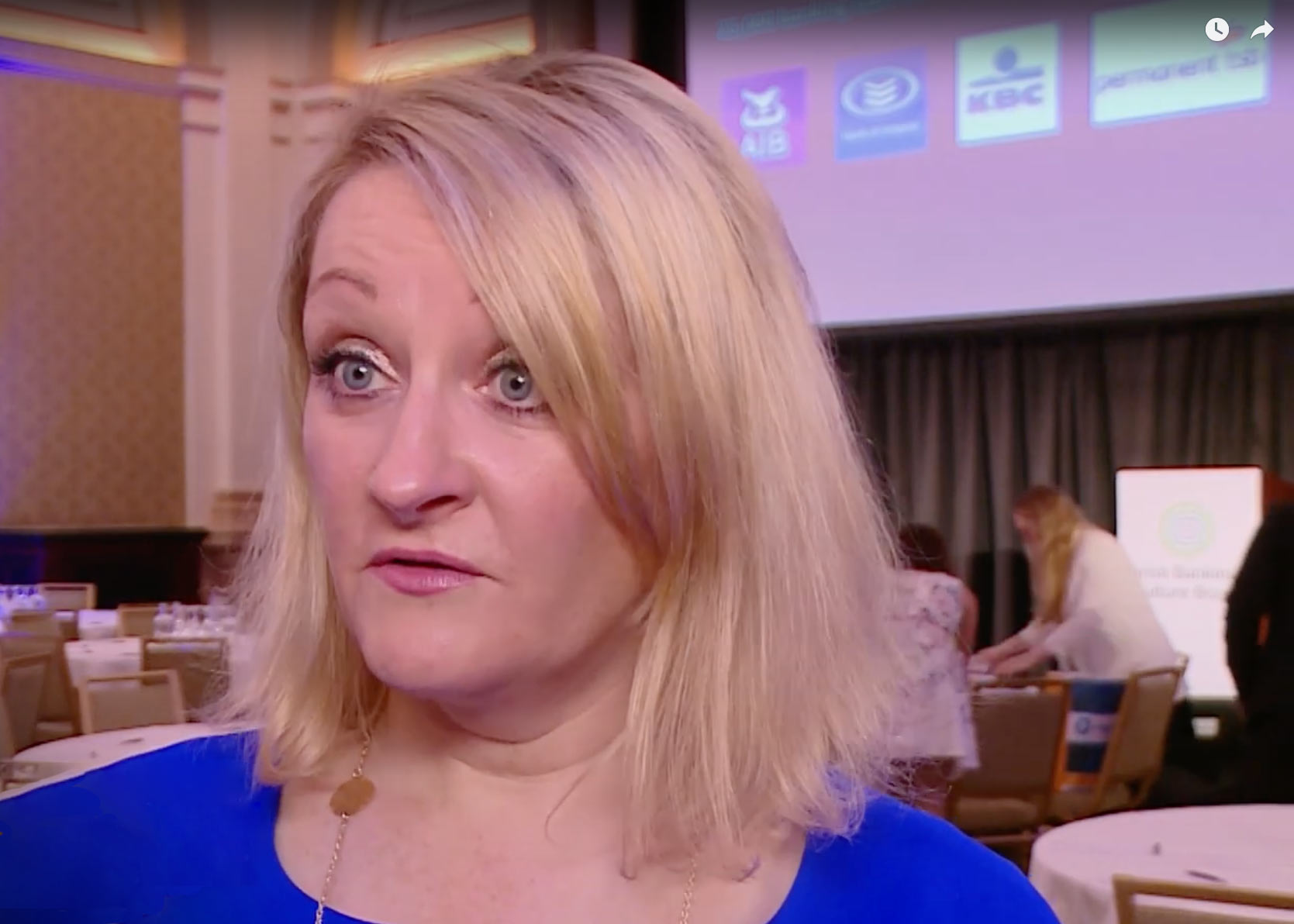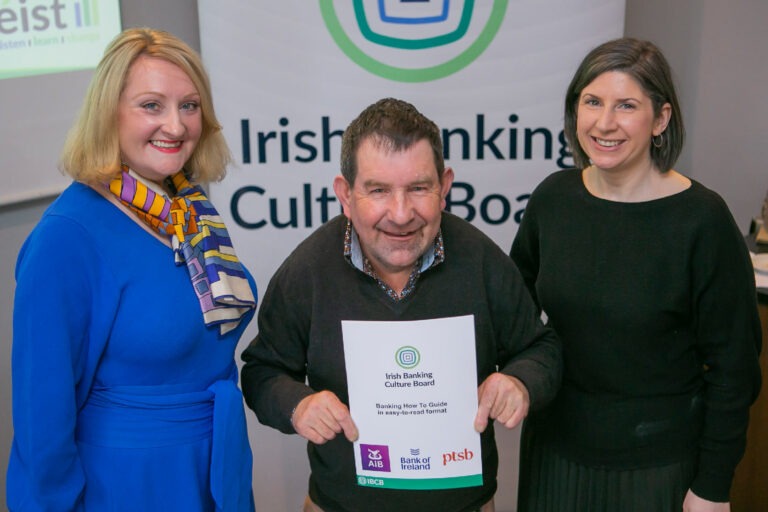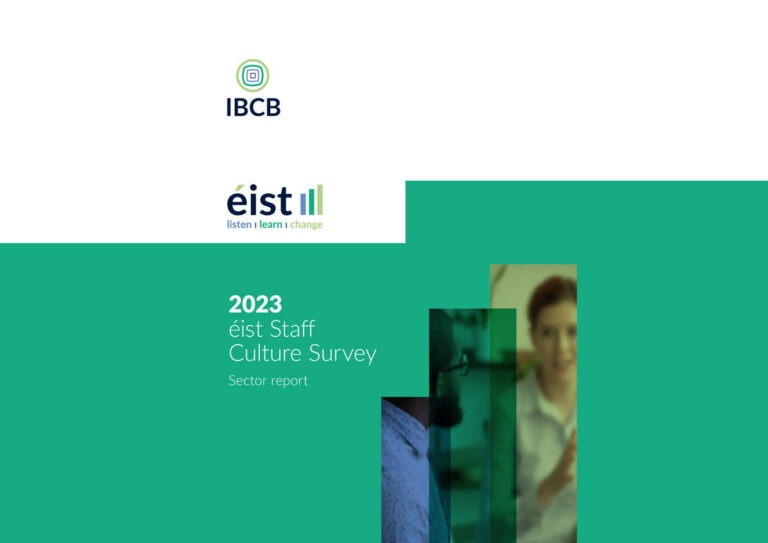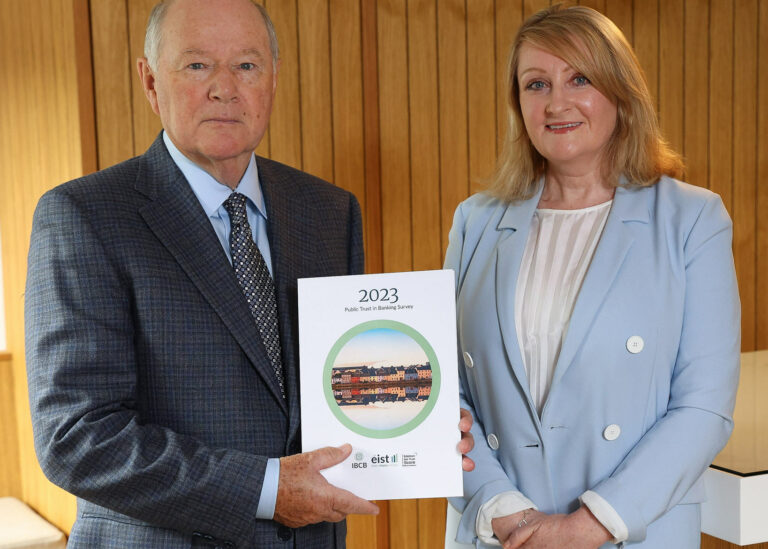Good morning and thank you all for coming.
Today marks the end of over 9 months of establishment activity in preparation for the launch of the Irish Banking Culture Board (IBCB).
From the outset, the objective of the 5 founding banks (AIB, BOI, KBC, PTSB and Ulster Bank) was that the IBCB would be a trusted independent voice to positively influence Irish banking culture.
We have been conscious throughout that the shaping of the IBCB should be independent, inclusive and informed by both the views of staff within the industry and its customers and stakeholders.
To do this, we decided early in the process to ask for, listen to and act on the views of these groups most impacted by banking culture. Today we are publishing two separate reports summarising the findings of this engagement and I would like to now briefly give you a sense of the approach and the findings.
Firstly, in relation to Bank staff. It was essential to gauge the views of the almost 25,000 staff working in the 5 founding banks. This process needed to be independent, confidential and based off a rigorous and proven survey methodology. For this reason, we engaged the UK Banking Standards Board to carry out the survey using their highly respected methodology which has been used to survey over 70,000 UK banking staff annually since 2015.
The survey of Irish banking staff was conducted in October 2018 and comprised 37 questions grouped into 9 themes of Honesty; Respect; Openness; Accountability; Competence; Reliability; Resilience; Responsiveness and Shared Purpose. The response rate was high – with almost 60% of staff completing the survey.
Each of the 5 banks has received its own report in relation to the survey and is addressing the findings through their own individual cultural programmes. What we are publishing today is the industry level report.
There are 8 key themes emerging, each composed of a mix of both positive and some more concerning feedback, I will focus here on 5 of these:
- Firstly, Purpose & Values: 75% of staff said that their organisation’s purpose and values were meaningful to them (Q35). However, nearly one-fifth see a conflict between their bank’s stated values and how business is actually done;
- Secondly, in relation to Customers. The vast majority of staff (85%) said that they saw their colleagues go the extra mile to meet the needs of customers and that they were encouraged to provide information to customers in a way that helps them make the right decisions (Q11). However, 19% of staff said that they did not believe that their bank put customers at the centre of business decisions (Q9);
- Thirdly, in relation to Speaking Up, one third of all staff said that they had wanted to raise a concern at work over the last 12 months. Of those who have raised a concern, less than 2 in 5 felt that they had been listened to and taken seriously. Reasons given for not Speaking Up included a feeling that nothing would happen as result and concerns over confidentiality;
- Fourthly, Staff Resilience & pressures – over half of all staff said that they feel under excessive pressure at work and one third said that this was having a negative impact on their health and well-being. Staff in retail branch & customer facing roles reported the most pressures;
- Fifthly, Ethics & behaviour – the vast majority – 91% of staff said that their colleagues act in an honest & ethical way (Q3). However, this positive needs to be balanced with the almost 15% of staff who have seen instances where unethical behaviour was rewarded and those who stated it was difficult to make career progression without flexing ethical standards.
Clearly a huge amount to reflect on. There is a significant amount of data and analysis behind these themes. Next steps will include the newly appointed members of the IBCB Board taking the time to collectively review and understand this data. Given that this was the first survey of its kind in Ireland, the results do not indicate the direction or pace of change. They will, however, assist the Board in identifying its priority areas of focus and will provide the baseline against which cultural change can be measured in subsequent years.
We also asked for, and listened to, the views of the public in relation to banking culture. Through a website yoursaybankingculture.ie, which was supported by a press and radio advertising campaign, we received 747 responses from members of the public in relation to the role, remit and composition of the IBCB. We also received comments on a variety of wider aspects of Irish banking, both current and over the past 10 years.
The Stakeholder consultation exercise involved 38 face to face interviews with individuals and organisations from right across Irish society. Consumer organisations, small and large business, farmers, charities, youth groups, students, trade unions, the elderly, media, politicians and regulators. Again, we received views on the role and remit of the IBCB but also wide-ranging comments on all aspects of Irish banking – both current and past.
Some of the key themes emerging from this consultation exercise are:
- The need for the sector to treat all customers – both profitable and less so, those in arrears or part of vulnerable groups with Respect. Examples included the means of communicating with customers – for example the tone, and frequency of letters to those in financial difficulties was raised a number of times; as were the number of phone calls required to get through to someone who could assist with an arrears issue; or customers in distress – post a bereavement for example having to repeat their query multiple times on a phone line;
- We heard about the need to consider marginalised or vulnerable customers and those in rural communities impacted by the evolution of the banking model – particularly via the move to digitalisation;
- The need for the sector to support financial education amongst their customers was mentioned frequently, including ‘just in time’ education prior to making significant financial decisions;
- The need for more transparent communications, less jargon in documentation but also transparency when things go wrong – it was generally accepted that mistakes happen but what is key is that when they do happen, they are quickly acknowledged, steps to resolve are clearly communicated and progress is explained;
- Finally, we heard about the need to consider the requirements of smaller business impacted by the move to less face to face banking – particularly SMEs and farmers.
Much of this feedback is quoted verbatim in the Consultation report we are publishing today. This makes sobering reading for the banking sector and points to the long road ahead to restore trust. However, it was important and necessary for the sector to ask for, and to listen to, these views – to hold the mirror up and to be prepared to act on what it reflects.
The challenge now is to translate these views into actions that result in positive change. Many of these actions will be taken by the IBCB itself, while others will be addressed by the 5 individual banks or other industry bodies.
These are not one-off exercises. The IBCB intends to continue to survey bank staff and to listen to the views of the public and stakeholders in relation to bank culture. Over time these surveys will provide an indication of the industry’s progress in achieving positive cultural change and in securing fair customer outcomes.
Our goal is that when we next seek the views of staff, the public and stakeholders that the narrative will be more positive. While we recognise that there is a long road ahead, the hugely positive sentiment towards the establishment of the IBCB, with 85% of the public saying they support its creation, is a great starting point.
We would like to thank all of the staff, members of the public and the stakeholders who participated. Your views have been heard and will form the foundation of both how the IBCB is structured and what it focusses on.
Copies of both of these reports will be available as you are leaving this morning. I would also like to note that we will have further tea & coffee available post the event in the room you were in earlier and would invite you to remain afterwards for some networking and discussion.
I am now delighted to introduce the recently appointed Chairman of the IBCB – Mr. Justice John Hedigan who will talk to you about how the consultation exercises have helped shape the composition of the IBCB through the selection of the Board members as well as setting out his vision for the IBCB.
Thank you.





